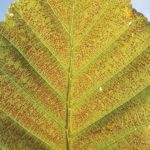Two PhD positions in Chemical Ecology in Forestry at the University of Alberta, Canada
University of Alberta, Edmonton (Canada) is seeking two outstanding PhD students in chemical ecology. Current research in the lab explores questions of broad relevance to invasion biology of forest insects in novel environments, emphasizing ecological functions of plant secondary compounds and evolution of insect-plant interactions in explaining herbivore host plant shifts. By doing so, the group integrates multiple disciplines, such as ecology, entomology, pathology, and chemical ecology to characterize interactions among multiple organisms such as trees, insects, and phytopathogens, and determine effects of the environment such as nutrients and water on the tripartite interactions. The two available student positions investigating various aspects of chemical ecology in forest ecosystem are:
1) Development of semiochemical tools to detect MPB in novel habitats: A previous study in our lab demonstrated that the major monoterpenes of the beetle’s new host, jack pine, synergized beetle attraction to the aggregation pheromone released by conspecifics, suggesting an ecological rapid adaptation to host compounds in the novel host (Erbilgin et al. 2014, New Phytologist 201:940-950). This project will build on these results and focus on the development of attractants to detect and monitor beetle activities in novel habitats.
2) Assessment of health of regenerating lodgepole pine seedlings in stands with varying levels of MPB-caused mortality: The unprecedented outbreak of the invasive MPB in Alberta presents government and industry with the challenge of managing lodgepole pine stands which represent a diversity of ecosite types and which have experienced varying intensities of mortality due to the beetle. This project will investigate factors driving spatial variation in post-beetle pine regeneration in Alberta. The community of biotic agents, insects and diseases, responding to the changes in microclimatic and landscape patterns over time will be examined across a range of lodgepole pine ecosite types and levels of beetle mortality.
Depending on the interest and quality of the applicants, all projects offer considerable flexibility in designing a research program that investigates areas of personal interest within the overall framework of the projects. A background in ecology, chemical ecology, entomology, or a related field is required, as is an interest in the linkages between plants and insects and/or diseases. Experience with any of the following will be an asset, but is not required: plant-insect interactions, forest entomology and ecology. Proficiency in spoken and written English is a necessity. Selections of students will be based on academic achievements, reference letters, and previous research experience. Strong verbal, written, and computational skills are essential. Tuition and fees and a standard Graduate Assistantship can be offered. Students are also eligible for Tri-Council graduate scholarships (e.g., NSERC) in their first year.
All positions are available to start in Fall (September 2014) or Winter (January 2015) terms. The applicants must meet the entrance requirements for The University of Alberta, Department of Renewable Resources, which can be viewed at: http://www.rr.ualberta.ca/GraduateProgram/PhDProgram.aspx
Interested candidates should email (1) a unofficial copy of their transcripts (just MSc), (2) curriculum vitae or resume, (3) a letter describing their research experience and interests (one-page limit), (4) recent TOEFL scores (if appropriate), and (5) the names and contact information of three referees, to Dr. Nadir Erbilgin, Department of Renewable Resources, 4-42 Earth Science Building, University of Alberta, Edmonton, Alberta T6G 2E3, CANADA. Phone: (780)-492-8693; Fax: (780)-492-1767. Additional information can be obtained via email or phone. Email: erbilgin@ualberta.ca.
Additional Information: Department of Renewable Resources – http://www.rr.ualberta.ca/



